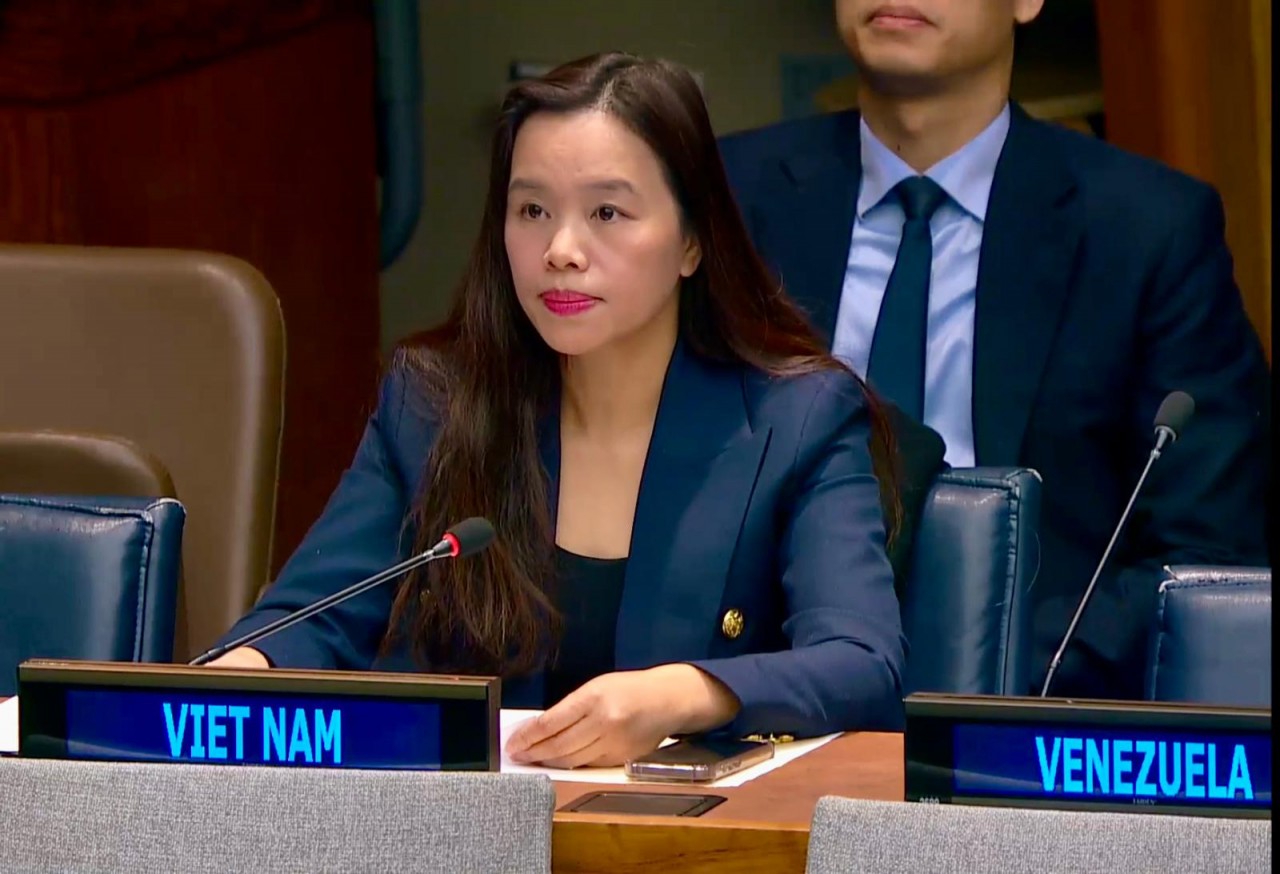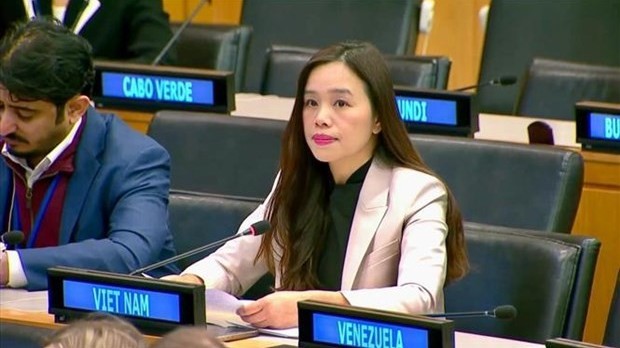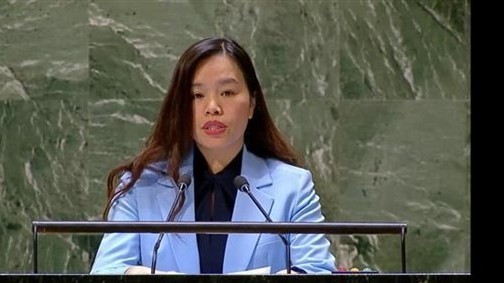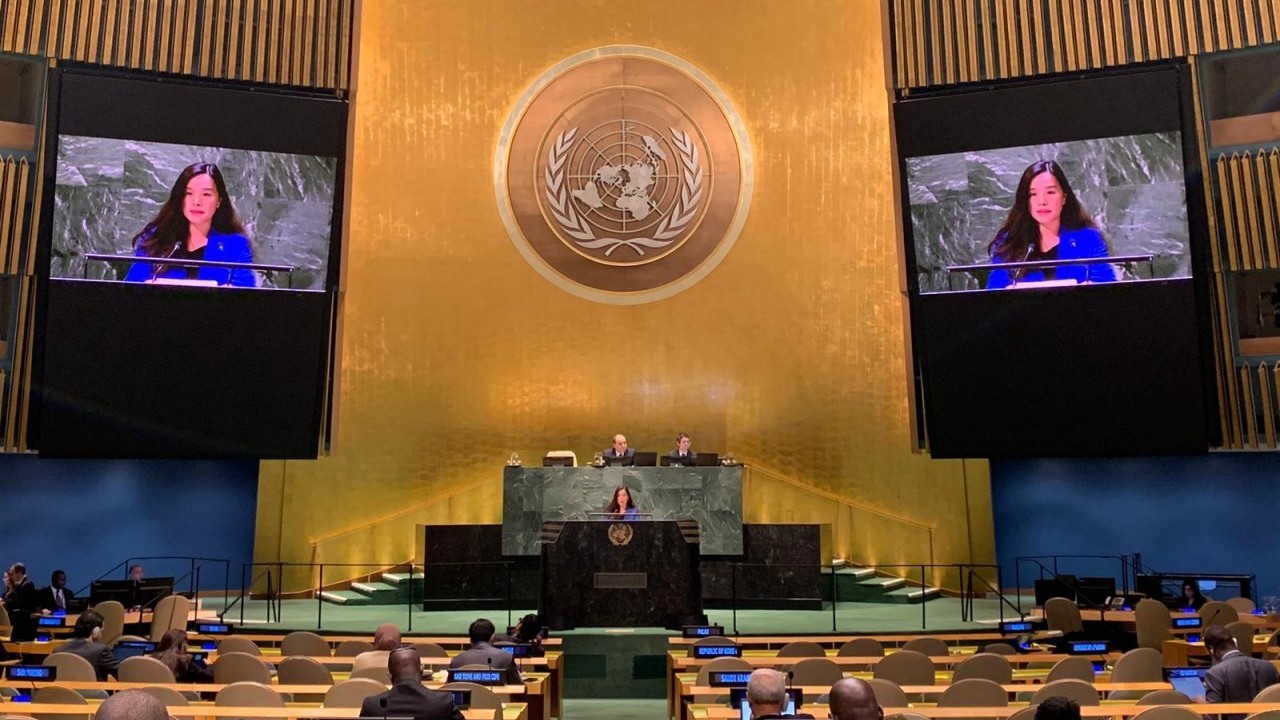
Vietnam prioritises building inclusive, equal, resilient society: diplomat
Latest
 |
| Minister Counsellor Le Thi Minh Thoa, Deputy Permanent Representative of Vietnam to the UN, speaks at the 62nd session of the UN Commission for Social Development on February 12. (Photo: VNA) |
The session from February 5 to 14, themed “Fostering social development and social justice through social policies to accelerate progress on the implementation of the 2030 Agenda for Sustainable Development and to achieve the overarching goal of poverty eradication”, saw the presence of representatives of UN member states and relevant international organisations.
In her remarks, Minister Counsellor Le Thi Minh Thoa, Deputy Permanent Representative of Vietnam to the UN, reaffirmed the country’s strong commitment to the implementation of the 2030 Agenda for Sustainable Development and underlined its priority of building an inclusive, equal, and resilient society where no one is left behind.
Basing on that orientation, Vietnam has carried out a number of policies on education, social security, and poverty elimination, thereby obtaining such results as reducing the multidimensional household poverty rate to 4.3% in 2022, raising the average income of poor households by 230%, and increasing the rates of literate people and school-age children attending school to over 90%, she noted.
Besides, Thoa added, Vietnam pledges not to pursue economic growth at the expense of the environment but make persistent efforts to achieve the target of net zero emissions by 2050, especially its participation in and implementation of the Just Energy Transition Partnership (JETP).
She held that there remain numerous challenges to the realisation of the social development and social justice target due to limited resources. This requires international cooperation be enhanced in building capacity and giving technical support for developing countries like Vietnam so as to promote efforts towards the common target of social development and social justice.
At the session, many participants shared the view that the process of promoting social development and social justice is being affected considerably by such global challenges as conflicts, climate change, and economic uncertainties.
Given this, it is necessary to step up national and international efforts to increase the provision of core social services, social security, and high-quality health and educational services with reasonable costs for all people, they said.









